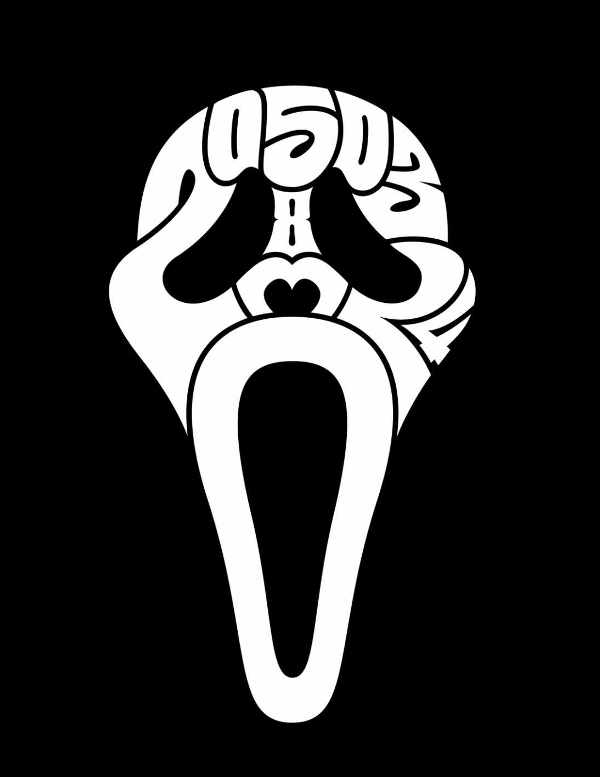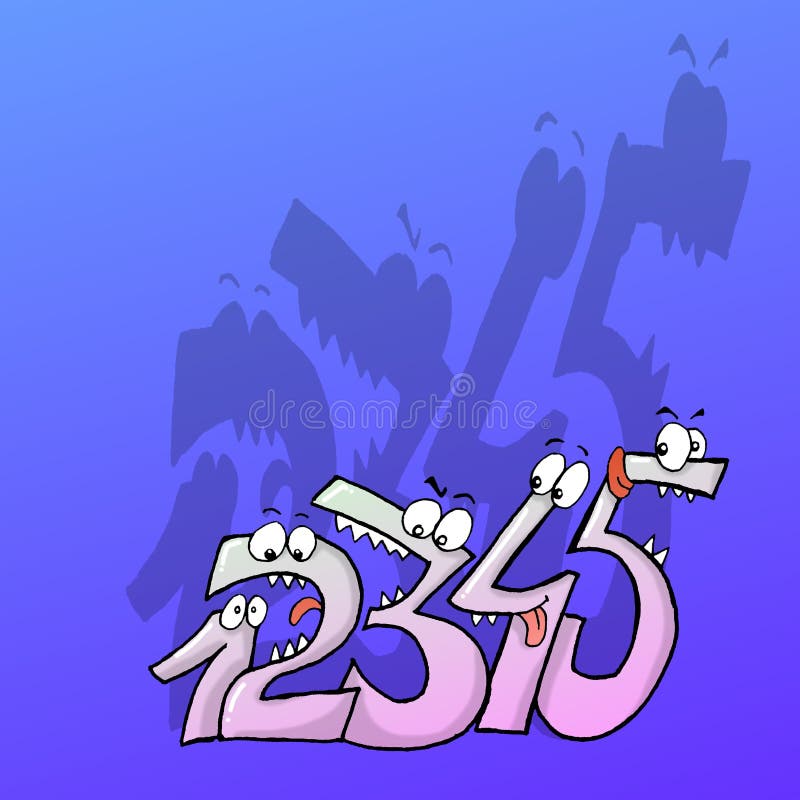Have you ever noticed how certain numbers just give you the chills? Like, they’re out there lurking in the shadows, waiting to mess with your mind. Scary numbers, man, they’re not just digits on a screen or a piece of paper. They carry this eerie energy that can make even the toughest person feel uneasy. And today, we’re diving deep into the world of these spine-tingling digits, uncovering what makes them so terrifying and why they keep popping up in our lives.
You might be thinking, “Numbers? Really? What’s so scary about them?” But trust me, once you start exploring the dark corners of mathematics and numerology, you’ll realize that some numbers have a seriously creepy vibe. From ancient myths to modern-day superstitions, these numbers have been around for centuries, haunting cultures all over the globe.
So, buckle up, because we’re about to embark on a journey that will leave you questioning everything you thought you knew about numbers. By the end of this, you might just find yourself double-checking your house number or avoiding certain dates on the calendar. Let’s get into it!
Read also:White Lies Shirt Ideas The Ultimate Guide To Styling And Creativity
What Are Scary Numbers Anyway?
Alright, let’s break it down. Scary numbers aren’t just random digits that someone decided to label as “spooky.” They’ve got history, stories, and sometimes even scientific explanations behind them. Think about it—numbers like 666, 13, or even 4 have been linked to fear and superstition for ages. But why? What makes them so different from, say, 7 or 8, which are often considered lucky?
Here’s the deal: scary numbers often carry cultural or religious significance. For example, 666 is famously known as the “Number of the Beast” in Christianity, while the number 13 is associated with bad luck in Western cultures. In Asia, the number 4 is considered unlucky because it sounds similar to the word for “death” in some languages. These connections give these numbers an extra layer of creepiness that sticks with people.
Why Do Scary Numbers Freak Us Out?
Now that we’ve established what scary numbers are, let’s talk about why they have such a powerful effect on us. It’s not just about superstition or old wives’ tales—there’s actually some psychology behind it. Humans are wired to look for patterns and meanings in everything, and numbers are no exception. When we come across a number that’s been labeled as “scary,” our brains automatically associate it with danger or negativity.
Plus, there’s the whole idea of confirmation bias. If you believe a number is unlucky, you’re more likely to notice bad things happening when that number comes up. It’s like a self-fulfilling prophecy that keeps the fear alive. And let’s not forget the media—movies, books, and TV shows love to play on our fears by using scary numbers in their plots. It’s a recipe for paranoia!
Psychological Impact of Scary Numbers
Let’s dive a little deeper into the psychological side of things. Studies have shown that numbers can actually affect our mood and behavior. For instance, people who are superstitious about the number 13 might avoid flying on the 13th day of the month or refuse to sit in row 13 on a plane. This isn’t just a minor inconvenience—it can have real-world consequences.
And it’s not just limited to individual fears. Entire societies have been shaped by the power of scary numbers. Take the city of New York, for example. Many buildings there don’t have a 13th floor—they skip straight from 12 to 14. It’s a small detail, but it shows how deeply ingrained these beliefs can be.
Read also:Shopping Like Fingerhut Unlock The Secrets Of Smart Shopping
Top Scary Numbers and Their Stories
Now, let’s get into the juicy part: the actual numbers themselves. Here’s a quick rundown of some of the most infamous scary numbers and the stories behind them.
666: The Number of the Beast
Ah, 666. The ultimate scary number. In the Bible’s Book of Revelation, it’s described as the “Number of the Beast,” associated with the Antichrist and all things evil. Over the years, this number has been linked to everything from Satanism to government conspiracies. Some people even believe that if you add up the numerical values of certain names or phrases, they’ll equal 666. Spooky, right?
13: The Unlucky Number
Thirteen has been giving people the heebie-jeebies for centuries. In Western cultures, it’s often seen as a symbol of bad luck. Think about it—how many times have you heard someone say they’re avoiding the 13th floor or refusing to sit in row 13 at the theater? This fear even has a name: triskaidekaphobia. And it’s not just a made-up word—there are actual phobia clinics dedicated to helping people overcome their fear of 13.
4: The Death Number
In many Asian cultures, the number 4 is considered unlucky because it sounds similar to the word for “death” in languages like Mandarin and Cantonese. As a result, you’ll often see buildings and elevators skipping the number 4 entirely. It’s not just a minor inconvenience—it can actually affect property values and business decisions. For example, a study found that houses with the number 4 in their address tend to sell for less than similar homes without it.
The Science Behind Scary Numbers
Of course, not everyone buys into the superstition surrounding scary numbers. Some people argue that there’s a scientific explanation for why certain numbers give us the creeps. For instance, evolutionary psychologists suggest that our brains are wired to be cautious when faced with unfamiliar or potentially dangerous situations. Numbers that are associated with negative outcomes, like 666 or 13, trigger this cautionary response, making us feel uneasy.
There’s also the concept of numerical symbolism, which suggests that numbers can take on different meanings depending on the context. For example, the number 7 is often seen as lucky because it’s associated with things like the seven days of the week or the seven wonders of the world. On the flip side, numbers like 666 and 13 are seen as unlucky because they’ve been linked to negative ideas or events.
How Scary Numbers Affect Our Daily Lives
Believe it or not, scary numbers have a bigger impact on our lives than you might think. From avoiding certain dates on the calendar to skipping floors in buildings, these numbers can influence everything from our routines to our decision-making processes. Here are a few examples:
- Many airlines and hotels avoid using the number 13 in their seating arrangements or room numbers.
- In Asia, businesses often avoid using the number 4 in their marketing or branding efforts.
- Some people refuse to schedule important events, like weddings or business meetings, on dates that include the number 13.
It’s amazing how much power these numbers can have over us, even if we don’t consciously believe in their significance. It’s like they’ve become part of the cultural fabric, influencing our behavior without us even realizing it.
Debunking the Myths Around Scary Numbers
Of course, not everyone buys into the whole scary numbers thing. Skeptics argue that these fears are based on nothing more than superstition and cultural conditioning. And they’ve got a point—there’s no scientific evidence to suggest that numbers themselves can cause harm or misfortune. So, why do so many people still believe in them?
Part of it comes down to human nature. We’re hardwired to look for patterns and meanings in everything, even when there’s no real connection. It’s why we see faces in clouds or assign significance to random numbers. Scary numbers are just another example of this tendency. But that doesn’t mean they’re not interesting—or entertaining—to explore!
Can Scary Numbers Be Good Luck?
Here’s a twist: what if some of these so-called scary numbers aren’t actually all that bad? In fact, there are plenty of examples where numbers traditionally seen as unlucky have turned out to be lucky—or at least neutral. For instance, the number 13 has been embraced by some cultures as a symbol of renewal and transformation. And in numerology, 666 is sometimes interpreted as a message of spiritual awakening rather than evil.
So, maybe it’s all about perspective. Instead of viewing scary numbers as something to fear, we could choose to see them as opportunities for growth or change. It’s all about how we choose to interpret them.
Conclusion: Embracing the Scary Numbers
At the end of the day, scary numbers are more than just digits—they’re a reflection of our fears, beliefs, and cultural history. Whether you believe in their power or not, there’s no denying that they’ve had a lasting impact on society. So, the next time you come across a number that gives you the creeps, take a moment to think about why it affects you so much. Is it really the number itself, or is it the stories and meanings we’ve attached to it over the years?
And hey, if you’re still feeling uneasy about those scary numbers, remember this: they’re just numbers. They don’t have any real power over you unless you give it to them. So, go ahead and embrace the creepiness—after all, it’s part of what makes life so interesting!
Now, it’s your turn. Do you have a favorite scary number? Or maybe you’ve got a story about how a number changed your life. Let me know in the comments below, and don’t forget to share this article with your friends. Who knows? You might just help someone overcome their fear of scary numbers!
Table of Contents
- What Are Scary Numbers Anyway?
- Why Do Scary Numbers Freak Us Out?
- Psychological Impact of Scary Numbers
- Top Scary Numbers and Their Stories
- The Science Behind Scary Numbers
- How Scary Numbers Affect Our Daily Lives
- Debunking the Myths Around Scary Numbers
- Can Scary Numbers Be Good Luck?
- Conclusion: Embracing the Scary Numbers


